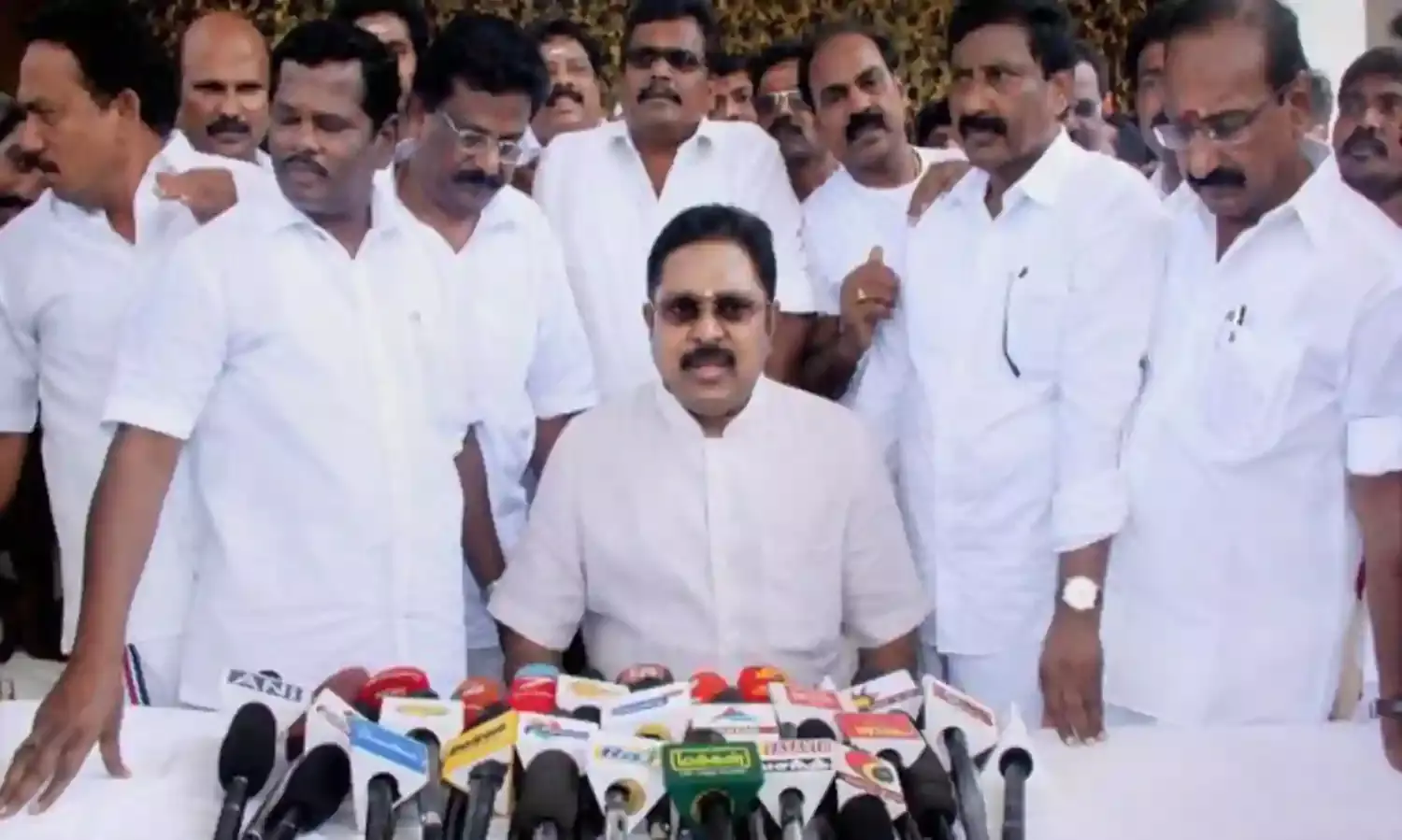Madras High Court Upholds Disqualification of 18 AIADMK Leaders
TTV Dhinakaran’s claims will be questioned now: DMK
The Madras High Court earlier today upheld a June 14 order disqualifying 18 rebel MLAs of the AIADMK who were loyal to sidelined AMMK leader T.T.V. Dhinakaran. Justice Sathyanarayanan said, “There is no fragility in Dhanapal’s order which Justice Banerjee upheld.”
He added, “All the materials that were available at the time of passing of the order by the Speaker alone have been taken into consideration and this court cannot go into the subsequent events.” The judge said he had delivered his independent view on the matter and was not driven by the views expressed by the two judges who heard it earlier.
A division bench of the court comprising Justices Indira Banerjee and M. Sundar delivered a split verdict last June. While Justice Banerjee upheld Speaker P. Dhanapal’s order disqualifying the AIADMK MLAs, Justice Sundar passed a dissenting judgment.
The Supreme Court had then appointed Justice M. Sathyanarayanan to hear the matter.
The issue emanated after a meeting between the 18 MLAs and then Governor (in-charge) C. Vidyasagar Rao on August 22, 2017. During this meeting, the MLAs handed over identical representations to the Governor ‘withdrawing their support’ to Chief Minister of Tamil Nadu E.K. Palaniswami.
Two days after this meeting and a subsequent press briefing by the MLAs, the Tamil Nadu government’s whip S. Rajendiran petitioned P. Dhanapal, the speaker of the state legislative assembly, demanding that 19 MLAs be disqualified as their actions amounted to voluntarily giving up membership of the party.
18 of the 19 MLAs were then disqualified by Dhanapal, who exercised his powers under the Anti-Defection Law granted under the Tenth Schedule of the Constitution, and the Tamil Nadu Legislative Assembly (Disqualification on Ground of Defection) Rules, 1986. He exempted S.T.K. Jakkaiyyan, who had informed him that he was pressured into submitting the representation to the governor.
The disqualified MLAs asserted in court that submitting their representations to the governor did not amount to their giving up party membership.
After today’s Madras High Court judgment, The Citizen spoke to T.K.S. Elangovan, DMK opposition leader and Rajya Sabha MP, on the effects the judgment will have on politics in Tamil Nadu. He said, “T.T.V. Dhinakaran’s claims will be questioned now. He couldn't take control over the party and retain his place. The AIADMK is divided into factions and has a leadership crisis.”
Of the DMK’s approach to the judgment in the upcoming general elections, Elangovan said, “If by-elections are held, it will have an impact on local politics. The DMK is united and has a strong leadership. Our alliance is also strong,” and added that, “The failure of the BJP and the AIADMK at the centre and in the state will definitely impact people's decision when they go to vote next year.”
The court’s verdict comes as a massive relief for the Palaniswami government. A restoration of the rebel MLAs’ membership could have begun a rearrangement in the state's politics, with the Dhinakaran camp likely joining hands with the opposition DMK and bringing the government dangerously close to losing its majority.
The current strength of the Tamil Nadu assembly is 216. While the AIADMK has 116 MLAs, the opposition including the DMK and others has 98.





